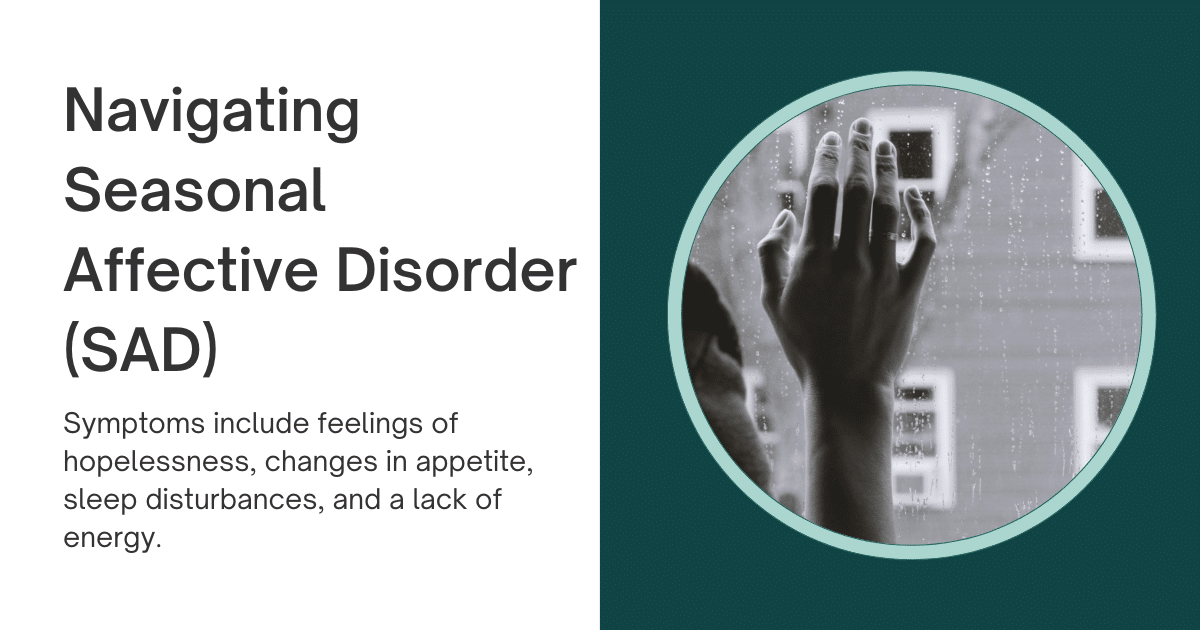In a scenic town like Telluride, it can be easy to overlook everyday life challenges, particularly during the busy seasons when health often takes a backseat. This intense work cycle, especially in anticipation of long off-seasons, can impact both physical and mental health, sometimes leading to Seasonal Affective Disorder (SAD) during winter. Addressing these mental health issues is as vital as physical health care, especially when seasonal changes significantly affect daily life. Embracing Telluride’s beauty also means acknowledging and caring for these living and present challenges.
Understanding SAD:
Seasonal Affective Disorder is a subset of depression marked by recurrent episodes during specific seasons. Common symptoms include feelings of hopelessness, changes in appetite, sleep disturbances, and a lack of energy. These symptoms can be debilitating, affecting one’s ability to function daily.
The Science Behind SAD:
The exact cause of SAD is not fully understood, but it is believed to be linked to reduced exposure to sunlight during shorter winter days. This decrease can upset your biological clock and lead to a drop in serotonin, a mood-regulating neurotransmitter, while increasing melatonin, which can disrupt sleep.
Risk Factors:
Factors that may increase your risk of SAD include gender (it’s more common in women), geographic location (living far from the equator where daylight hours are shorter in winter), family history, and having depression or bipolar disorder.
Symptoms to Look Out For:
Winter-onset SAD symptoms might include oversleeping, appetite changes, weight gain, a lack of energy, feeling sad, worthless or having a depressed mood, little interest or pleasure in activities once enjoyed, low motivation, difficulty concentrating or making decisions, thoughts of death or suicide.
Treatment and Management:
Effective treatments for SAD include light therapy, engaging in on-going psychotherapy, talking with one of our behavioral health clinicians (view their bios here) and medication. Light therapy involves daily exposure to a light box that simulates sunlight, hile our Behavioral Health counselors can help you navigate these challenges in a professional and confidential setting. In some cases, antidepressant medication may be prescribed.
Primary Care at Telluride Medical Center:
TRMC offers an integrated approach to your primary care visit, with the option to talk with one of our behavior health clinicians along with your medical provider. Our BHC are clinically trained mental health clinicians and can offer brief interventions, behavior change support, as well as provide counselor recommendations for on-going support. Incorporating preventative wellness checks at Telluride Medical Center can play a crucial role in managing SAD. Regular check-ups can help identify early signs of SAD, ensuring timely intervention. These checks provide an opportunity to discuss any seasonal changes in mood or behavior with healthcare professionals, allowing for a more tailored approach to treatment and management.
Additionally, the care team at Telluride Medical Center can offer guidance on lifestyle adjustments and coping strategies to mitigate the effects of SAD. These may include nutritional advice, exercise routines, and stress management techniques, all of which contribute to overall mental health and well-being.
Lifestyle Adjustments:
Alongside medical support, lifestyle changes can be beneficial in managing SAD. Maximizing exposure to sunlight, maintaining regular exercise, and staying socially connected can all help alleviate symptoms.
Financial Assistance for Behavioral Health Services:
The San Miguel Behavior Health Solutions Fund fund will provide anyone who lives and/or works in San Miguel County with 6 counseling sessions reimbursed at $110/session directly to the counselor. If a counselor’s rate is higher than $110/session, the client will have to pay the difference. The hope is that these funds reduce barriers to care and promote positive mental health for our community.
Recipients of this fund will be eligible for an additional 6 sessions based on income. Anyone earning less than 400% of the Federal Poverty Level will qualify. These additional six sessions will also be reimbursed at $110/session. This is a little different than last year, and hopefully more simplified and user friendly for both clients and therapists.
Click here for more information.
What to Do:
Seasonal Affective Disorder is a real and treatable condition. If you are experiencing symptoms of SAD, schedule a visit at Telluride Medical Center by calling 970-728-3848
With a combination of professional healthcare support and lifestyle adjustments, it is possible to manage SAD effectively. Remember, taking proactive steps towards your mental health is just as important as caring for your physical health, particularly in the challenging winter months.






